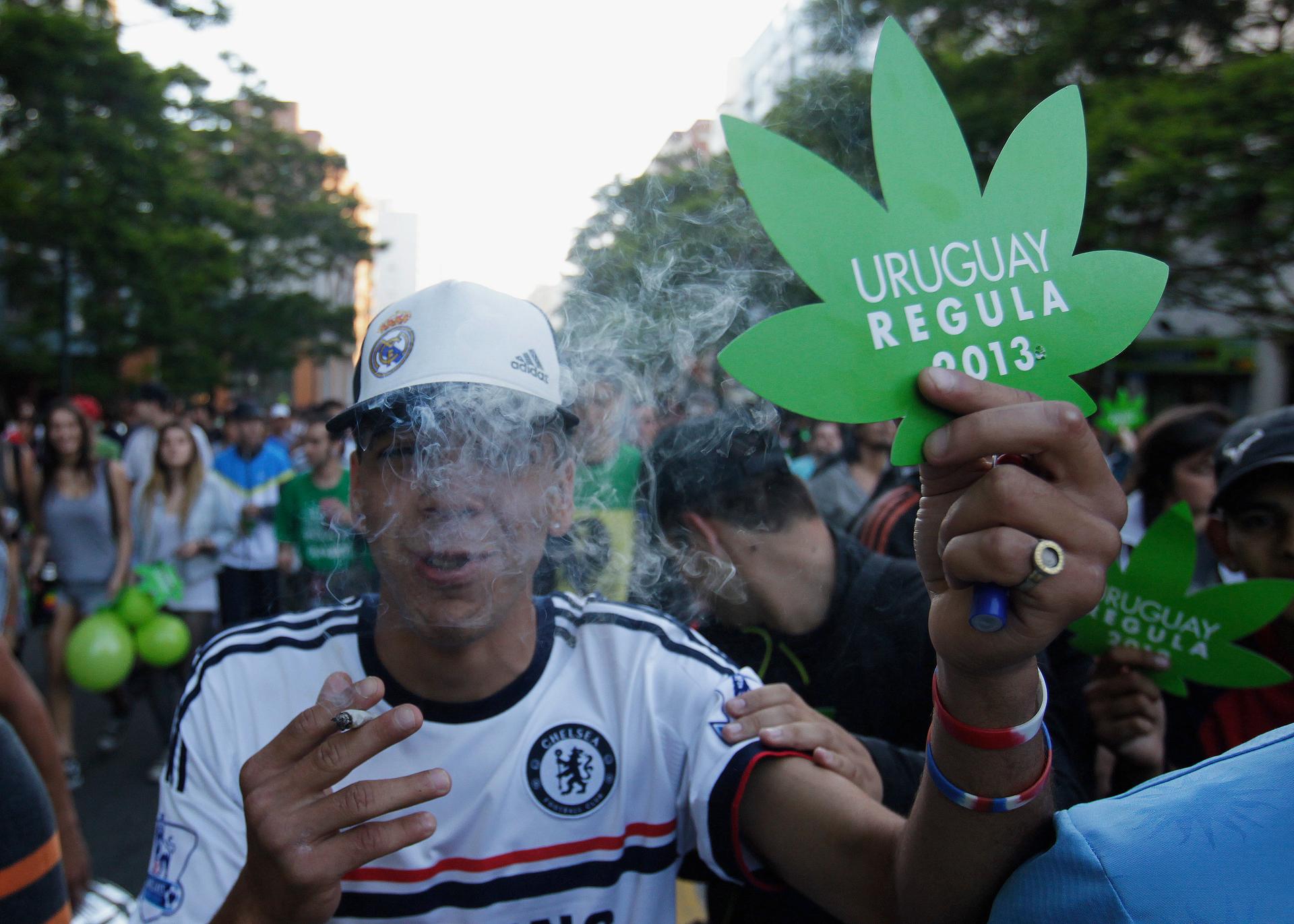Uruguay becomes the first nation to oversee a fully legal marijuana market
People participate in the so-called “Last demonstration with illegal marijuana” on their way to the Congress building in Montevideo, Uruguay, December 10, 2013.
It was already legal to smoke pot in Uruguay. Now the country will be the first to create a national marketplace for legal marijuana. The government will oversee the production, sale and use of the drug.
Uruguay's governing Broad Front majority was united in favor of the law, and the country's Senate passed it 16 to 13.
"The state won't produce marijuana," said the BBC's Ignacio De los Reyes. "What it will do is it will provide farmers who are interested in growing marijuana with licenses. These producers will grow marijuana, then they will sell it to the state. And the government will distribute this marijuana and sell it in licensed pharmacies. Then everyone who is registered in a national database will be allowed to buy marijuana in these kinds of pharmacies."
Opinion polls show that two-thirds of Uruguayans oppose a government-run marijuana industry. But 78-year-old President Jose Mujica has said he's convinced the global drug war is a failure and feels bureaucrats can do a better job by legalizing marijuana.
"He says he doesn't want his country to be wrecked by the violence of the drug trafficking, like in Mexico, Colombia or Brazil," said De los Reyes. "Even if it costs him a lot at a political level, this is an experiment that is worth trying because he says that Latin America and the US have already tried to fight drug trafficking by law enforcement, by sending even more police or troops to the streets in order to combat the cartels."
President Mujica is expected to sign the law and have the market operating next year.
"It will take months or even a year until we see the first harvest of legal marijuana," said De los Reyes. "But what we can see already is there are a couple of grow shops that have opened in Montevideo that are starting to sell all the cannabis paraphernalia, all the the gardening tools and fertilizers." He says that includes all the tools needed to grow marijuana at home. The law allows people to grow a limited amount of their own pot.
The UN drug watchdog has said that Uruguay's decision to legalize the production, sale and consumption of marijuana violates international law.
The story you just read is accessible and free to all because thousands of listeners and readers contribute to our nonprofit newsroom. We go deep to bring you the human-centered international reporting that you know you can trust. To do this work and to do it well, we rely on the support of our listeners. If you appreciated our coverage this year, if there was a story that made you pause or a song that moved you, would you consider making a gift to sustain our work through 2024 and beyond?
